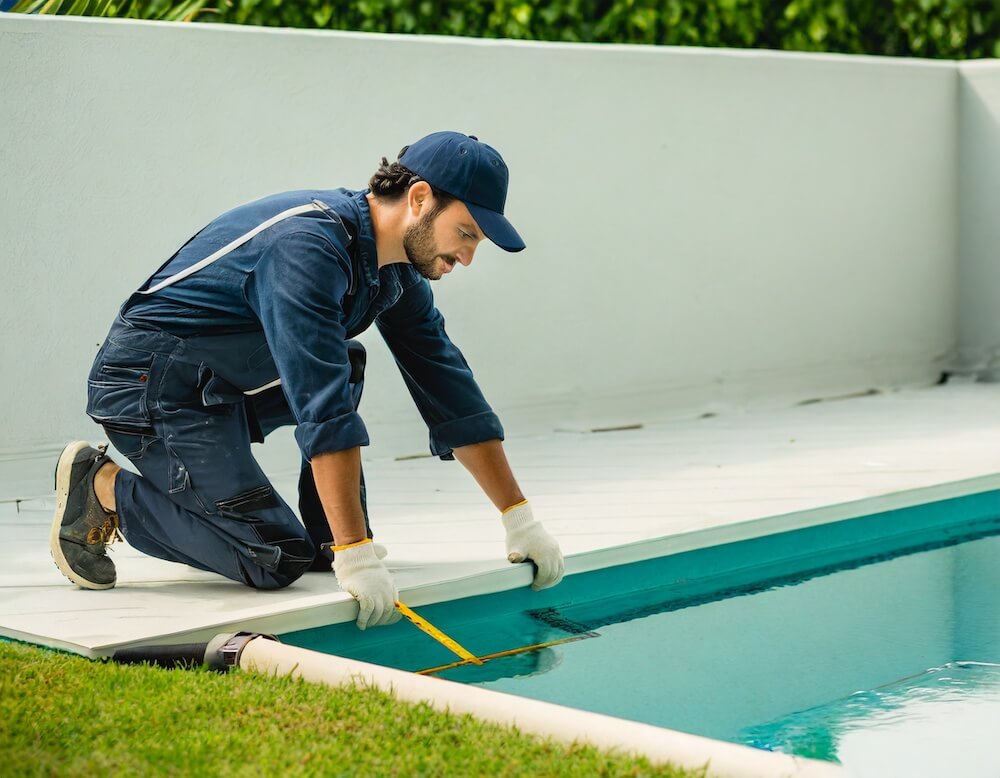If you have a pool on your Florida or Alabama property, you probably already know that scheduling an annual inspection is vital. These inspections can keep your pool running at its best and help you catch any issues earlier rather than later.
However, you may not know exactly what is included in a pool inspection report and what the results can mean for you. Here is what you need to know about pool inspection reports.
Pool Safety Features
The inspection will include looking at the location of the pool in relation to nearby power lines or transformers. The inspector might recommend taking extra safety precautions if there is a hazard.
This part of the inspection also includes evaluating the walkways that lead to the pool decking. They will look for uneven surfaces near the pool that could cause trip and fall accidents.
An important aspect of the pool inspection also includes examining the fencing and gates that surround the pool. While every state has its own minimum measurement requirements, your fence should be high enough to keep children from climbing it and gaining unsupervised access to the pool.
Additionally, a locking gate can prevent unintentional access to the pool.
Pool Interior, Tile, and Decking
If the interior of your pool has a vinyl lining, the inspector will examine the lining for tears or rips in the material. Pools without vinyl lining can also suffer damage, though. That is why the inspection will also include looking for damage to plaster or concrete pool surfaces.
No matter which type of pool interior you have, repairing a damaged interior is necessary to stop the water from leaking and causing more property damage.
The area surrounding your pool includes the coping and the deck. The coping is between 12 and 18 inches wide and typically consists of brick, tile, or concrete. The area between the coping and the swimming pool’s edge is the deck.
The inspector will check both of these areas for cracks, tilt, and pitch to ensure there isn’t leaking and that rainfall can flow away from the pool.
Pool Lighting
Older pools use incandescent bulbs for interior lighting, while newer swimming pools use LED bulbs. In either case, the inspection will include checking these fixtures to ensure they remain intact and functional.
Your inspector will look for signs of condensation in the lighting fixtures since moisture exposure can lead to mold growth in and around your pool.
Saltwater Corrosion
A saltwater swimming pool eliminates the need for chlorine, but either type of swimming pool has its own maintenance issues. For a saltwater pool, the pool inspection will include looking for signs of corrosion.
The salt can cause the pool’s interior to erode over time. Annual inspections will help catch this problem before it worsens.
Pump, Filter, and Heater
The pool pump circulates the water, directing it through the filter and heater. A faulty pool pump will affect every other aspect of your pool’s systems, so it’s important to ensure it’s working properly. The inspection will include making sure the pump’s electrical wiring, connections, and components are in good condition.
Checking the filter is equally important. The inspection of the filter ensures the system continues to filter debris and contaminants from the pool water. The inspector will check the valves to ensure proper flow through the filtration system.
The heater will also undergo a thorough inspection. If you installed a new heater, the inspector will verify that the heater is sufficient to heat all of the water in your pool. When you need a new heater, talk to a pool care specialist about the right size heater for your swimming pool.
Pool Accessories
Your swimming pool probably has accessories, such as a pool cover, diving board, or infinity edge. A pool inspection usually considers all of these features. Your inspector will check for rusting or damaged edges since these surfaces can pose safety and health risks.
Modern swimming pools have features that connect to mobile apps for closer monitoring. Some apps even have remote control features that allow you to change the settings for the pool’s heating or filtration systems. An inspection will include testing these automated or remote-controlled features to ensure everything is operating properly.
Trust Our Pool Care Pros With Your Pool Inspection
Inspections are a key part of caring for your home’s swimming pool. At Calm Waters Pool Services, our experienced team provides thorough inspections, as well as cleaning, maintenance, and repair services. To get started, contact us today!





